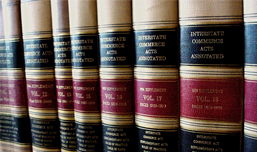The media landscape in 2014
Lorna Caddy and Adam Rendle set out below some predictions on how the media landscape is likely to change and develop during the course of 2014.
Contents of this article
Press Regulation
2013 has seen the beginning of the phone hacking trial of former News of the World journalists, accused of conspiring to hack mobile phones. The trial is set to go well into 2014. All of the eight defendants deny all of the charges. The nature of the evidence and the outcome are likely to colour the public's perception of the press, and also their assessment of whatever regulatory measures are agreed for regulation of the press.
Following the Leveson Report (published over a year ago now) and much wrangling, the Privy Council granted a new cross-party royal charter on press regulation in October 2013. In the meantime, the press industry has been working hard to design its own framework, establishing the Independent Press Standards Organisation (IPSO). It bills itself as "the new, tough, independent organisation being established to regulate the UK's newspapers and magazines."
 In October 2013, IPSO unveiled its final plans, which would give its regulator powers of investigation, enforcement and sanction. For example, under the plans, IPSO would have the power to impose fines of up to £1 million. IPSO hopes to begin work early in 2014 and is working hard to encourage publishers to sign up to its framework.
In October 2013, IPSO unveiled its final plans, which would give its regulator powers of investigation, enforcement and sanction. For example, under the plans, IPSO would have the power to impose fines of up to £1 million. IPSO hopes to begin work early in 2014 and is working hard to encourage publishers to sign up to its framework.
In the meantime, Maria Miller (Secretary of State for Culture, Media and Sport) gave an interview in November in which she alluded that the Royal Charter might not be necessary, subject to IPSO being set up properly. In fact, what she said could be seen as contradictory: later in the interview she said the best way would be for IPSO to be governed by the Royal Charter watchdog, which will need to govern in accordance with the Royal Charter principles.
It is hard to reconcile the Secretary of State's statement with the new Crime and Courts Act 2013. That Act contains provisions for the award of costs and exemplary (additional) damages in certain types of claims (defamation, privacy, breach of confidence, malicious falsehood, harassment). It makes specific reference to the Royal Charter. Publishers who do not signed up to a Royal Charter compliant regulator run the risk of exemplary damages if the complainant sues them in court and they lose a case. The media defendant will, in the majority of cases, have to pay the claimant's costs even if the claimant loses. On the flip side, there are incentives in the Crime and Courts Act for publishers who are members of a Royal Charter compliant regulator. Where a claimant pursues a complaint via the courts, rather than the regulator, the publisher will (in the majority of cases) not have damages awarded against it, where the claimant could have resolved its complaint.
The first half of 2014 should give us some answers. Will a sufficient number of newspaper and magazine publishers sign up to IPSO and will its members qualify for the incentives under the new Crimes and Courts Act 2013 or will the Act be used to sanction them?
"Qualified one way costs shifting" for defamation and privacy claims
In April 2013, the Legal Aid, Sentencing and Punishment of Offenders Act 2012 came into force, bringing a number of changes, regarding costs management and litigation funding. We saw the abolition of the winning litigant’s ability to recover success fees under conditional fee agreements (sometimes known as no win, no fee agreements) and also after the event (ATE) insurance premiums from the losing party.
However, at the end of 2012, the Government announced a "short delay" in implementing these changes for defamation and privacy claims, while a costs protection regime was put in place for claimants. This announcement followed on from the Leveson report which recommended1 that, in the absence of an approved mechanism for dispute resolution via an independent regulator without cost to the complainant, the Government should introduce qualified one way costs shifting for defamation, privacy, breach of confidence and similar media related litigation.
 The Government has just finished consulting on proposals for "qualified one way costs shifting" for defamation and privacy claims. It has proposed three groups of litigants, each with a different level of costs protection:
The Government has just finished consulting on proposals for "qualified one way costs shifting" for defamation and privacy claims. It has proposed three groups of litigants, each with a different level of costs protection:
- those of modest means, who should be entitled to costs protection in full (‘nil net liability’);
- the ‘mid’ group of those of some means – who could pay something, but not the costs in full – who should be entitled to costs protection in part (‘capped liability’);
- those of substantial means, who should not get any costs protection because they would not face ‘severe financial hardship’ if they were ordered to pay the other side’s costs.
Under the proposals, it would be open to the parties to agree the costs protection position. However, if the position cannot be agreed, it would be for the judge to decide, based on a statement of assets provided by the applicant.
The Government's intention is to introduce the new regime in April 2014. At the same time, it will implement the delayed provisions from the Legal Aid, Sentencing and Punishment of Offenders Act 2012 for defamation and privacy proceedings.
The reforms will mean, for example, that a successful claimant, whose claim is funded under a conditional fee agreement and qualifies for costs protection, will be liable to pay its lawyers' success fee from its damages award. In recognition of this, general damages for non-pecuniary loss will be increased by 10%. The losing party will remain liable for the majority of the winner's costs (unless there is costs protection in place limiting exposure for costs) but will not be liable for the success fee or any ATE insurance premium.
Defamation Act 2013
The Defamation Act 2013 will come into force on 1 January 2014, along with the Defamation (Operators of Websites) Regulations 2013. Key provisions of the new Act are as follows:
- Introduction of a requirement for claimants to show that they have suffered serious harm before suing for defamation;
- Removal of the current presumption in favour of a jury trial;
- Statutory codification of Reynolds Qualified Privilege (a public interest defence developed through case law, where the defendant can demonstrate responsible journalism), described in the Act as “responsible publication on matters of public interest”;
- Increased certainty/protection for operators of websites that host user-generated content, providing they comply with the procedure to enable the complainant to resolve disputes directly with the author of the material concerned (the Regulations govern the mechanics of the new section 5 defence);
- Introduction of new statutory defences of truth and honest opinion to replace the common law defences of justification and fair comment; and
- Introduction of a single publication rule, meaning that broadly, claims can only be brought in the period of 12 months from the first date of publication. At the time of writing, the 12 month period renews each time there is a fresh publication, meaning the limitation period is in reality, much longer than 12 months.
 It will be interesting to see whether the Act leads to a downturn in the number of defamation claims brought by claimants, particularly in light of the new requirement for claimants to show that they have suffered serious harm before suing. 2013 has seen lots of successful applications by defendants, where the High Court has struck out claims deemed not to be sufficiently serious, meritorious and/or relating to publications which are not deemed to be defamatory. This body of successful applications2 is giving a clear message that a claim must be sufficiently serious and "worth the candle" if it is to survive through to a trial. In practice then, we may not see a big change in the number of cases actually coming to trial.
It will be interesting to see whether the Act leads to a downturn in the number of defamation claims brought by claimants, particularly in light of the new requirement for claimants to show that they have suffered serious harm before suing. 2013 has seen lots of successful applications by defendants, where the High Court has struck out claims deemed not to be sufficiently serious, meritorious and/or relating to publications which are not deemed to be defamatory. This body of successful applications2 is giving a clear message that a claim must be sufficiently serious and "worth the candle" if it is to survive through to a trial. In practice then, we may not see a big change in the number of cases actually coming to trial.
UK copyright reform
The seeds of UK copyright reform have been planted over the past couple of years and in 2014 we will start to see the first of the crop breaking through the soil. Professor Hargreaves' review, which was primarily responsible for sowing the seeds, was concerned that copyright was "obstructing innovation and economic growth" and was "falling behind what is needed". So how will copyright law be reformed in 2014 to prevent it, in the review's words, impeding "vigorous participation in emerging business sectors"?
Well, looking at the bigger picture, not hugely. This is not, however, to deny the individual significance of the reforms which will be introduced and their effect on the day-to-day lives of those whose businesses revolve around copyright. The relatively limited nature and extent of the reforms perhaps demonstrate that copyright law itself was and is not the burden on innovation that Hargreaves thought it to be. The results of Taylor Wessing's fourth Global Intellectual Property Index, whose survey respondents ranked the UK's copyright regime top of the 36 jurisdictions surveyed, suggest that the regime is in relatively good order (see our microsite here).
So 2014 will not see, perhaps to Professor Hargreaves' disappointment, a radical overhaul in UK copyright law. There will be significant changes around the edges that all involved in the industry will have to prepare for in some way but the fundamentals will remain the same.
The UK copyright reforms can be roughly put into two groups: an expansion of the number of exceptions to copyright infringement and extensions to collective licensing. Looked at as a whole, it is difficult to see how they might promote innovation or economic growth in the ways Hargreaves wished for.
Expanding exceptions
The three new exceptions that most seem to serve Hargreaves' aims are those for private copying, fair dealing use of quotations and fair dealing parody, caricature and pastiche. The exact wording of the new exceptions is still undergoing "technical review" but it is expected that they will be in force in April 2014.
 The private copying exception is restricted to private copying by an individual for non-commercial purposes and applies to all works. For example, it would allow people to copy a CD from their music collection onto their MP3 player or phone. However, it would not allow them to make copies of their CDs and give the CDs or the copies to other people. Only those copies which have been "lawfully acquired" can be copied. This seems to include a digital download but it is not clear whether it would include a copy obtained through another exception, such as the time-shifting exception. Original copies which are only temporarily held by the individual (e.g. from a tethered streaming service) cannot be copied. The exception does not seem to be intended to apply to text content, such as newspaper articles, made available on websites. There will be no provision for "fair compensation" to rights owners and contract terms preventing lawful private copying will be unenforceable.
The private copying exception is restricted to private copying by an individual for non-commercial purposes and applies to all works. For example, it would allow people to copy a CD from their music collection onto their MP3 player or phone. However, it would not allow them to make copies of their CDs and give the CDs or the copies to other people. Only those copies which have been "lawfully acquired" can be copied. This seems to include a digital download but it is not clear whether it would include a copy obtained through another exception, such as the time-shifting exception. Original copies which are only temporarily held by the individual (e.g. from a tethered streaming service) cannot be copied. The exception does not seem to be intended to apply to text content, such as newspaper articles, made available on websites. There will be no provision for "fair compensation" to rights owners and contract terms preventing lawful private copying will be unenforceable.
The fair dealing use of quotations exception could be the most practically important, as its scope is open ended. It will not permit any small scale use of copyright works; it is likely that courts would expect to see some form of description, commentary or analysis alongside the use of the quotation. The government expects the exception to benefit academics, journalists and non-commercial users of social media. The typical types of permissible uses would be for information, analysis, argument, comment or debate. The government has also explicitly included use of "a lyric or a few bars of music in a book about the history of pop music" and use of extracts in works such as biographies and documentaries as within the defence. To do so, the works used would need to be illustrating a point, rather than making the point themselves. On the other hand, sampling, mash-ups and use of extracts in "best of" TV and radio programmes are unlikely to be within the defence: there is no discussion of the work or something else and the uses squarely conflict with the normal exploitation of the works. Asking "what is the use of the quotation helping to discuss" could be a useful rule of thumb when working out whether the exception applies.
The caricature, parody or pastiche exception is based on the fair dealing concept and is intended to allow the creative industries to make minor uses of copyright material without a licence. The government's intention was in part to enable the UK comedy industry to compete in the worldwide entertainment market, by having to pay fewer licence fees. There are unlikely to be any definitions of the key concepts. Fair dealing is likely to play as big a role in defining the limits of the exception as any court-provided definitions of parody etc. Courts are likely to take into account factors such as what was the dominant impression of the parody, how much new input did the user make, what was the purpose of the parody, would it substitute demand for the original, has too much been taken and was there any need to use that particular work? There is likely to be a sliding scale of the acceptability of parodies, with political commentary at the most acceptable end, through commercial parodies for entertainment purposes to commercial parodies for advertising purposes at the least acceptable end.
Collective licensing
 In June 2013, legislation was passed which (i) will allow the government to set minimum standards for the operation of collecting societies and (ii) enables the government to allow third parties to grant licences for use of orphan works and for use of works for which the third parties do not have the express mandate to license (known as extended collective licensing or ECL).
In June 2013, legislation was passed which (i) will allow the government to set minimum standards for the operation of collecting societies and (ii) enables the government to allow third parties to grant licences for use of orphan works and for use of works for which the third parties do not have the express mandate to license (known as extended collective licensing or ECL).
The government requires collecting societies to self-regulate in the first instance. If that fails, the government can require a collecting society to adopt and publish a code of practice that complies with specified criteria. If it fails to, the government can impose a code of practice. These powers are likely to come into force in April 2014. They are not likely to be used regularly, as most UK collecting societies, in combination with the British Copyright Council, have already adopted codes of conduct. The British Copyright Council has also appointed an "Independent Code Reviewer" to review its principles of codes of conduct to ensure they remain fit for purpose, which will reference the government's benchmark recommendations. The first review commenced in November 2013.
When the powers to grant orphan works and ECL licensing powers were introduced, there was a great deal of largely ill-informed criticism that they would herald the end of copyright licensing (being an opt-in system) as we know it. The regulations to implement these powers have not yet been introduced so they are unlikely to become a practical reality until the second half of 2014 at the earliest.
A person wishing to use an orphan work (one whose owner cannot be identified/found) will need to apply to the government-appointed independent authorising body for a licence and will need to demonstrate that, following a "diligent search", the owner could not be found. Licences may be granted for specified purposes and subject to a licence fee, payable upfront and held for the missing owner if they reappear. As the government has stressed, the orphan works scheme will not allow anyone to use copyright works for free and without permission. Given the administrative burden would-be users will have to go through, orphan works licensing is likely only to be used for particularly unique works, for which no readily available substitute can be found.
The government will also have power to allow collecting societies (if they wished and their members supported that wish) to operate voluntary extended collective licensing within the UK. This would enable the society to grant collective licences which covered works in the same category as they are expressly authorised to represent, without needing specific approval from the rights holder. In such a case, the unrepresented rights holder would have to opt out from the ECL schemes. ECL is only likely to be legally possible and commercially viable in sectors where there are strong existing collecting societies but where a substantial portion of works within that sector are not already covered by those societies' mandates. For example, the government has suggested that, as most use of photographs in the UK is currently licensed directly, it is unlikely that ECL would have much impact. The government's consultation on the regulations implementing ECL closes on 28 January 2014 (see here).
The view from Europe
 The European Commission noted at the end of last year that the digital economy is expected to grow seven times faster than overall EU GDP in the coming years. This gives some perspective to the importance of getting the legal framework right for exploitation of digital content.
The European Commission noted at the end of last year that the digital economy is expected to grow seven times faster than overall EU GDP in the coming years. This gives some perspective to the importance of getting the legal framework right for exploitation of digital content.
The Court of Justice of the European Union
Since the implementation of the Information Society Directive 2001/29/EC (the InfoSoc Directive), over a decade ago, the Court of Justice of the European Union (the CJEU) has played an enormous role in harmonising certain areas of copyright law (to read more about this, click here). This level of judicial intervention is unsatisfactory, not least because private parties bear the cost of developing the law.
While we wait to see whether proposals are tabled for reform to the European copyright framework, the CJEU's pipeline demonstrates that it will continue to establish how the InfoSoc Directive and other Directives apply to the online environment. During 2014, it is likely to deliver important rulings on whether linking and framing infringe the communication to the public right (Svensson C-466/12, Bestwater C-348/13 and C-More Entertainment C-279/13), on the jurisdiction(s) in which copyright infringement claims can be brought (Hi-Hotel C-387/12) and on whether technological protection measures can be used to prevent non-infringing uses of copyright works (Nintendo C-355/12). The Court has traditionally taken a maximalist approach to subsistence and infringement of copyright but some of these cases, notably those on linking and framing, may reveal a slight shift in approach and recognition that not all online uses of copyright works fall within rights holders' exclusive rights.
Licences for Europe – Stakeholder dialogue
 2013 saw the progress of the Commission's "Licences for Europe" structured stakeholder dialogue, with the final plenary session taking place during November 2013. This stakeholder group was assigned to four parallel work strands, tasked with the objective of delivering practical industry solutions. Their focuses were on (1) cross border access and the portability of services; (2) user-generated content and licensing for small-scale users of protected material, (3) audio-visual sector and cultural heritage institutions, and (4), text and data mining for scientific research purposes. Vice President of the EU Commission, Neelie Kroes, expressed a wish at the final plenary session to leave as much as possible to stakeholders to address before stepping in with legislative proposals.
2013 saw the progress of the Commission's "Licences for Europe" structured stakeholder dialogue, with the final plenary session taking place during November 2013. This stakeholder group was assigned to four parallel work strands, tasked with the objective of delivering practical industry solutions. Their focuses were on (1) cross border access and the portability of services; (2) user-generated content and licensing for small-scale users of protected material, (3) audio-visual sector and cultural heritage institutions, and (4), text and data mining for scientific research purposes. Vice President of the EU Commission, Neelie Kroes, expressed a wish at the final plenary session to leave as much as possible to stakeholders to address before stepping in with legislative proposals.
While the third working group made the most progress, the main outcome from the year long process was a series of very high level pledges, rather than "practical industry solutions" (click here to read the Commission's press release).No doubt, this has come as a disappointment to the Commission.
Legislative responses
The European Commission has stated that it will make a decision in early 2014 whether to table legislative reform proposals on the following elements of the copyright legislative framework:
- Territoriality in the Internal market;
- Harmonisation;
- Limitations and exceptions to copyright in the digital age;
- Fragmentation of the EU copyright market;
- How to improve the effectiveness and efficiency of enforcement.
Given the deemed lack of solid proposals coming out of the Licences for Europe process, we can be pretty confident that we will see some legislative reform proposals. Might it be that all of the UK Government's efforts on reforming domestic copyright exceptions will be superseded sooner than we might have realised?
Collecting societies
 2014 will see a further draft of an anticipated Collective Management Directive. In relation to online licensing of music, the Commission's draft published in 2012 and also a recent press release from the European Parliament and Council anticipate that:
2014 will see a further draft of an anticipated Collective Management Directive. In relation to online licensing of music, the Commission's draft published in 2012 and also a recent press release from the European Parliament and Council anticipate that:
- Collecting societies' members will have the freedom to select the collecting society of their choice, irrespective of where that collecting society is located within the EU. Members will be able to mandate that collecting society to represent them across Europe.
- Consequently, service providers will obtain licences from a small number of collecting societies operating across EU borders, rather than clearing rights in the country of exploitation.
These legislative proposals will make for an easier path to pan European licensing.
If you have any questions on this article please contact us.


Lorna Caddy

Adam Rendle
Lorna Caddy and Adam Rendle explore what media law and copyright developments will be most significant next year.
"The press industry has been working hard to design its own framework, establishing the Independent Press Standards Organisation"
"The losing party will remain liable for the majority of the winner's costs (unless there is costs protection in place limiting exposure for costs) but will not be liable for the success fee or any ATE insurance premium."
"The UK copyright reforms can be roughly put into two groups: an expansion of the number of exceptions to copyright infringement and extensions to collective licensing."
"The European Commission noted at the end of last year that the digital economy is expected to grow seven times faster than overall EU GDP in the coming years."

